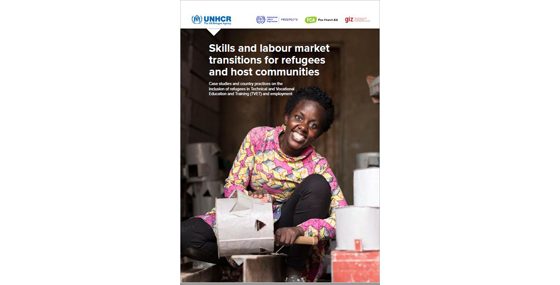9 lessons – Transforming Technical and Vocational Education and Training for Refugees
Growing number of refugees and internally displaced people (IDPs) from protracted crisis situations are highlighting the need for durable solutions to long-term displacement situations. Instead of waiting forever to return home, young people especially need opportunities to educate themselves and find employment or start their own businesses.
DECISION MAKERS must consider the attributes and capabilities that young women and men already possess as active citizens; eager to participate in society but frustrated at being excluded from decisions that affect their lives.
Of the 20.4 million refugees under UNHCR’s mandate, around half of them are under the age of 18 and approximately 8 million are of school-going age. Attending Technical and Vocational Education and Training (TVET) is an excellent way to develop skills needed in the job market. However, young refugees, internally displaced people and their host communities often lack access to training opportunities.
Therefore Finn Church Aid, UNHCR, GIZ and ILO have come together to identify solutions for TVET in refugee contexts. The result is a multi-country study aimed at identifying and collecting good practices for improving access to and participation in TVET programmes for refugees, internally displaced people, and host communities. The programmes are implemented by national ministries, private sector actors, development agencies and NGOs.
Read on to find out what we’ve learned. You can find the full study here
1 Partnerships – work together, learn from the evidence
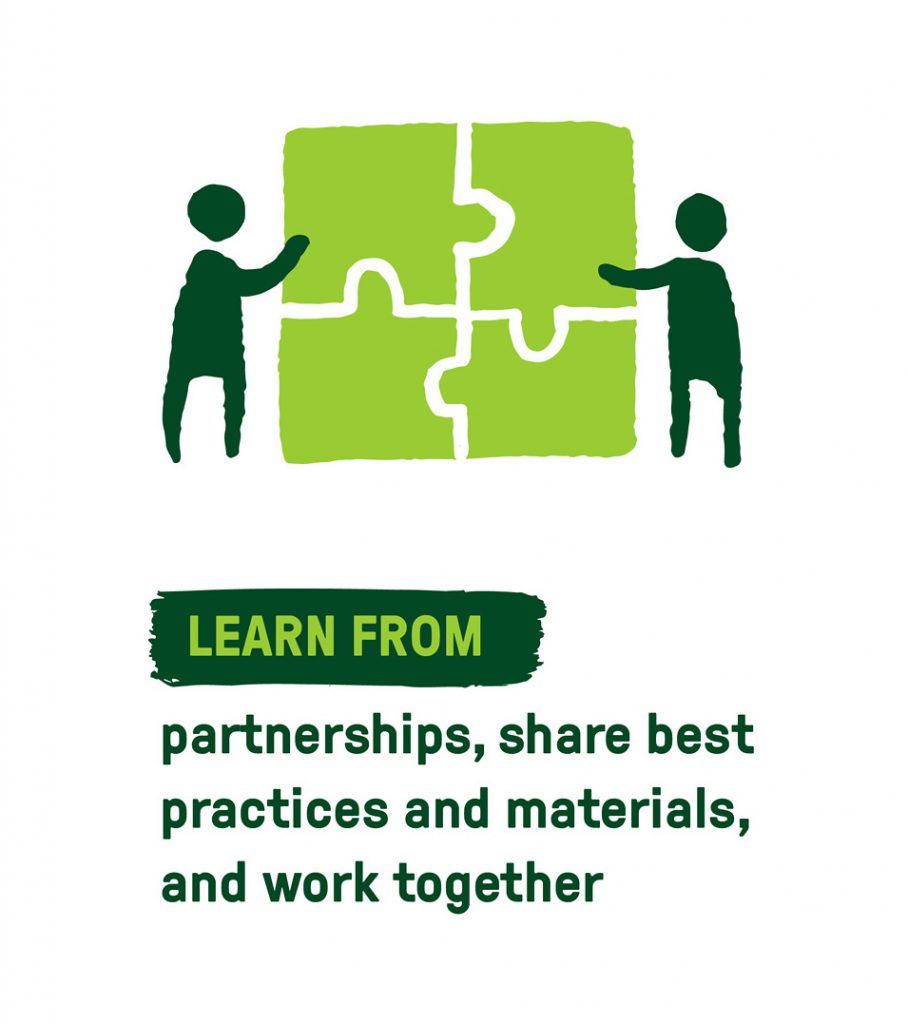
This report that is joint work between Finn Church Aid, UNCHR, GIZ and ILO is a good example of partnerships in TVET context. TVET programmes tend to operate in national silos thus extending the dialogue can trigger the sharing of good practice and lessons learnt among TVET actors.
TVET actors, including NGOs, must learn from interventions by other actors. Multi-actor dialogue between funding agencies, national authorities and trade unions and chambers of commerce can expand the role of TVET actors within programmes, embedding multiple components targeting both supply and demand of the labour market.
2 Inclusion of refugees and IDPs to national systems
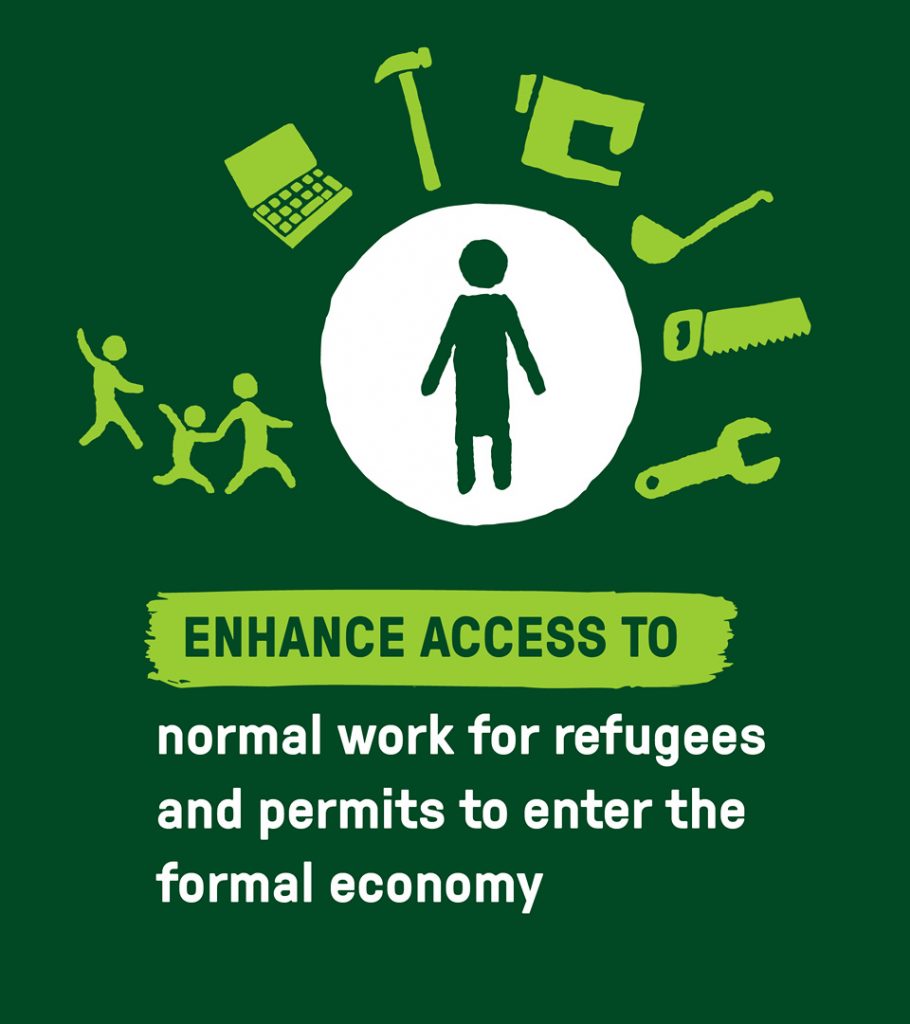
Refugees need durable solutions. Ten years ago, many Syrian refugees were waiting to go home soon. We cannot wait with education for crises to end. Children and young people especially need education and livelihoods. Inclusion of refugees into systems of host countries is important – but this needs also more long-term funding commitments from donors. Short-term funding cannot create continuity that is needed in protracted crisis.
Translate inclusive national policy documents into regulatory frameworks that recognise the status of refugees and forcibly displaced people and enable their legal inclusion in TVET and skills recognition services and their access to the formal labour market.
We need to value the socioeconomic potential of refugees and IDPs, recognising their skills and strengthening their motivation to lead a self-determined life.
3 Teacher Training – there is no education without teachers
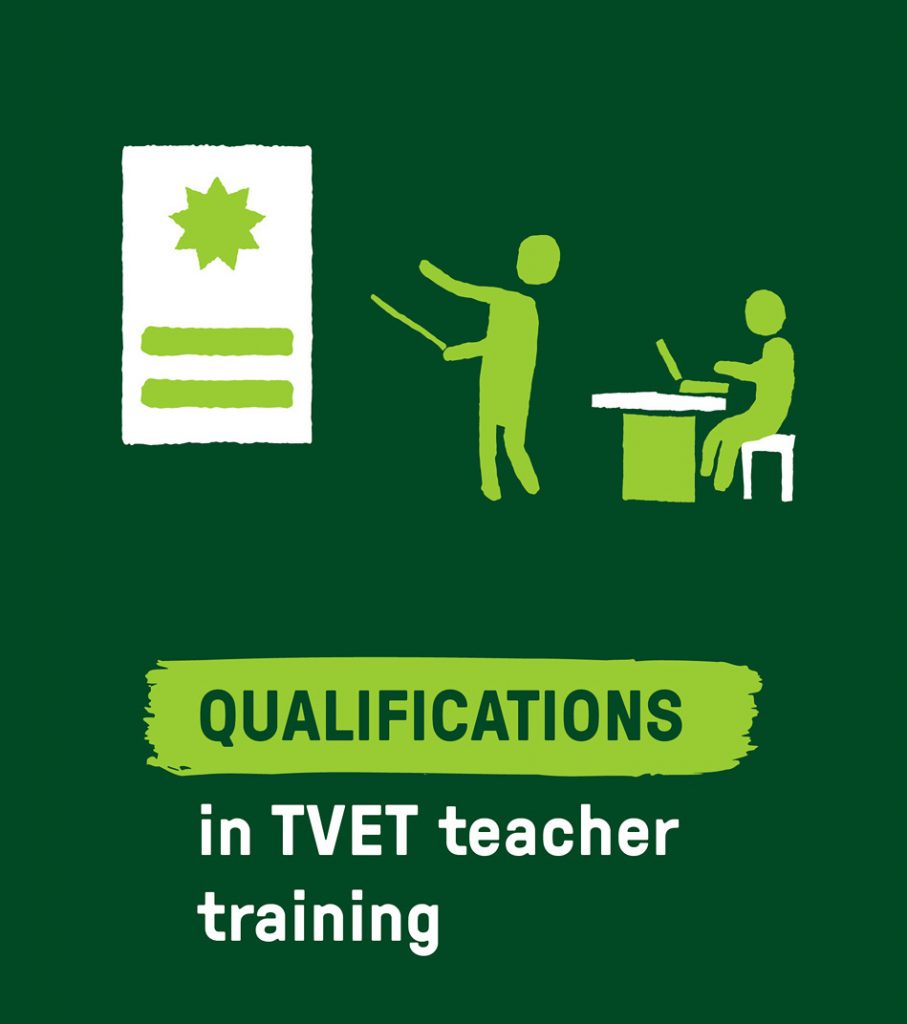
We need to value teachers – also in the humanitarian and refugee context. That means formalising TVET teacher training and this needs investment by governments and donors.
Formal teacher training is important for the quality of TVET and the perception of the TVET teacher’s work. At Finn Church Aid, we include teacher training in our education programmes, including mentorship and guidance for their own careers, plus courses in complementary teaching skills, like psychosocial support and guidance to students.
4 Labour market orientation – work together with businesses
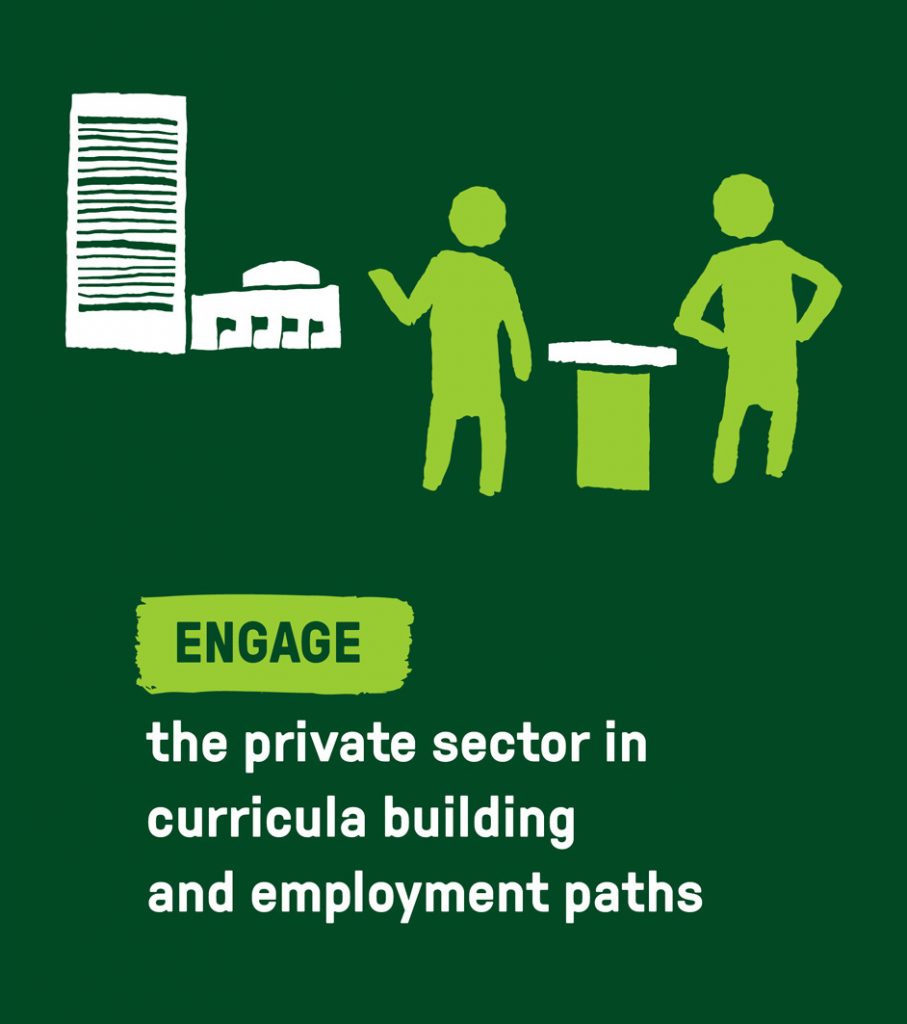
Good labour market integration is crucial for quality TVET, we need to understand labour markets and work closely together with private sector and thirds sector (including labour unions) to provide education that leads to employment or entrepreneurship.
When designing TVET programmes for refugees, there is a need for more real-time and systematic evidence on the evolution of markets, on the issuing of work permits and other risk factors that could hamper access to the formal and informal labour market in vulnerable communities. TVET actors should work together to produce strong labour market assessments and share this information with refugees.
Ensure the involvement of employers in the design of flexible and easily upgradeable curricula and learning material and encourage work-based learning schemes for refugees and host communities
5 Life & core skills + career guidance and counselling

While market-relevant, TVET needs to include life and civic skills like teamwork, communication, critical thinking, problem solving, negotiating or a proactive work attitude – nowadays also remote work skills. These skills make possible adaptation to labour market changes.
Career guidance and counselling is found to be a key to improving completion rates and effective support to TVET learners, including those who require a more individualized approach.
Standardised training for career guidance counsellors in teacher training institutes would ensure the quality. Finn Church Aid has proven the concept of career counselling in programmes such as in Cambodia, where counselling for students has led to fewer dropouts and greater progression to higher education.
6 Gender and disability inclusion – support those who may drop out
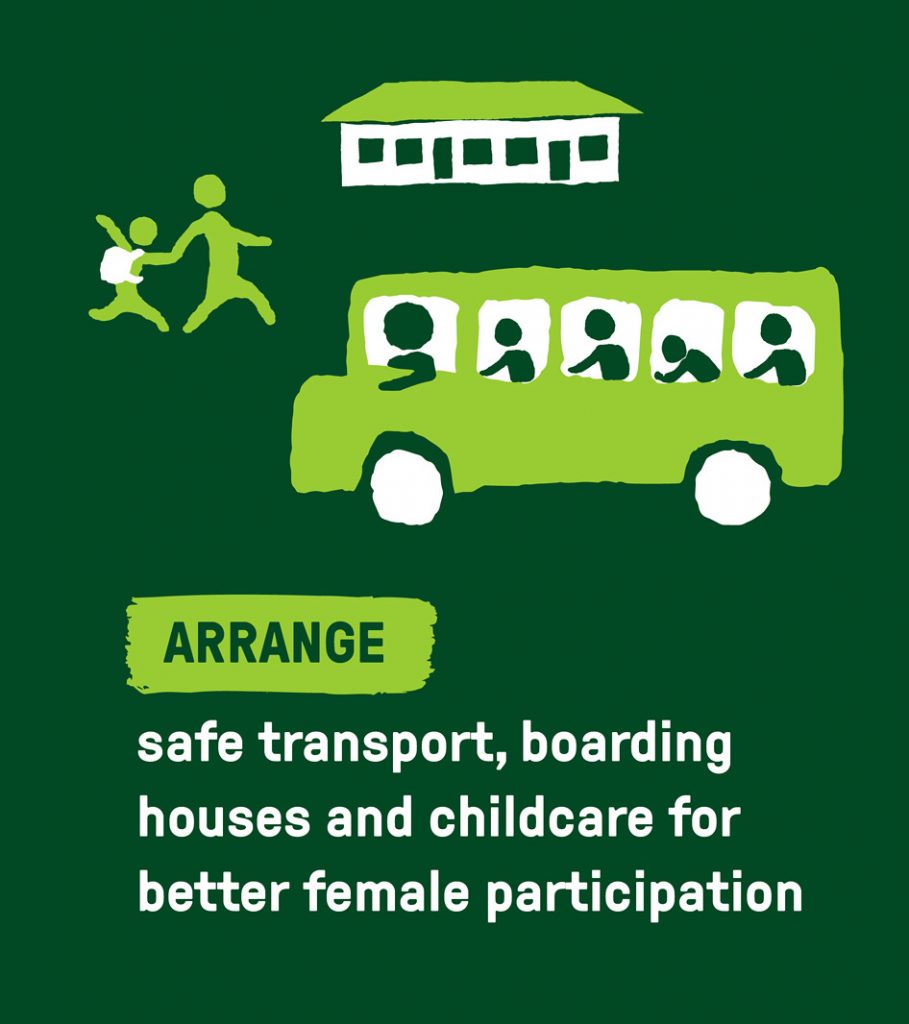
Students, especially those from vulnerable backgrounds, need help to stay the course. Practically that means support like free day-care for children on site, accessibility for those with disabilities and help with transportation costs to and from training centres.
To encourage long term participation of women, centres must provide safe transport safe boarding house and secure and clean hygiene facilities, free dignity kits for menstruating women and promote all vocational courses for both genders.
Consider disabilities: TVET institutes should accommodate the needs of people with disabilities more explicitly by working more closely with other actors such as the Ministries of Labour and specific commissions for disability, and disabled people’s organizations.
7 Recognition and accreditation – papers matter
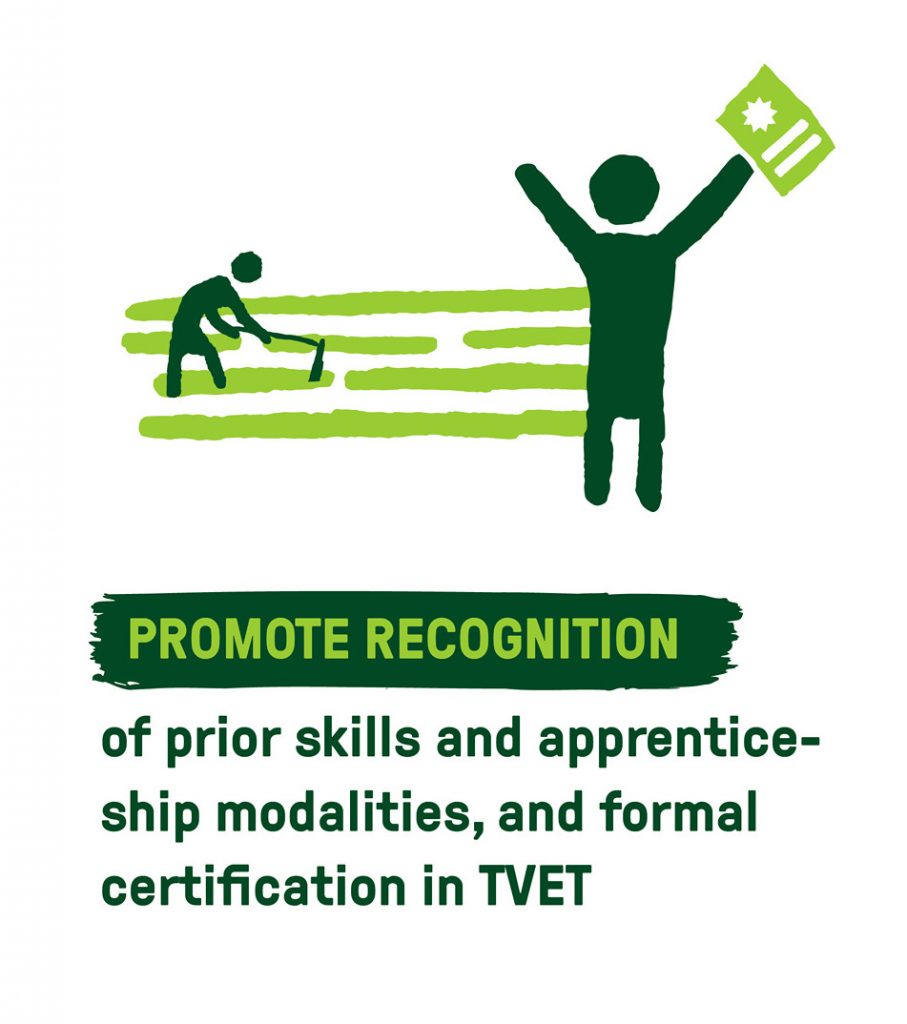
Bring recognition of prior learning and mutual recognition of skills and qualifications at national, regional (and global) level: This is of the highest importance. Countries should strengthen their national systems for the recognition of prior learning to ensure that skills and qualifications that people possess are recognized in national labour markets, opening opportunities for further learning, and accessing formal labour markets.
FCA’s approach strongly emphasises Linking Learning to Earning. Core to that is the student’s guarantee that completing the course will lead to a recognised certification or diploma that can use to access the job market. In many contexts, the formal certificate or accreditation also opens the pathway to universities. So, this means the realization of both educational rights and the right to a decent livelihood.
8 Bridging to the labour market
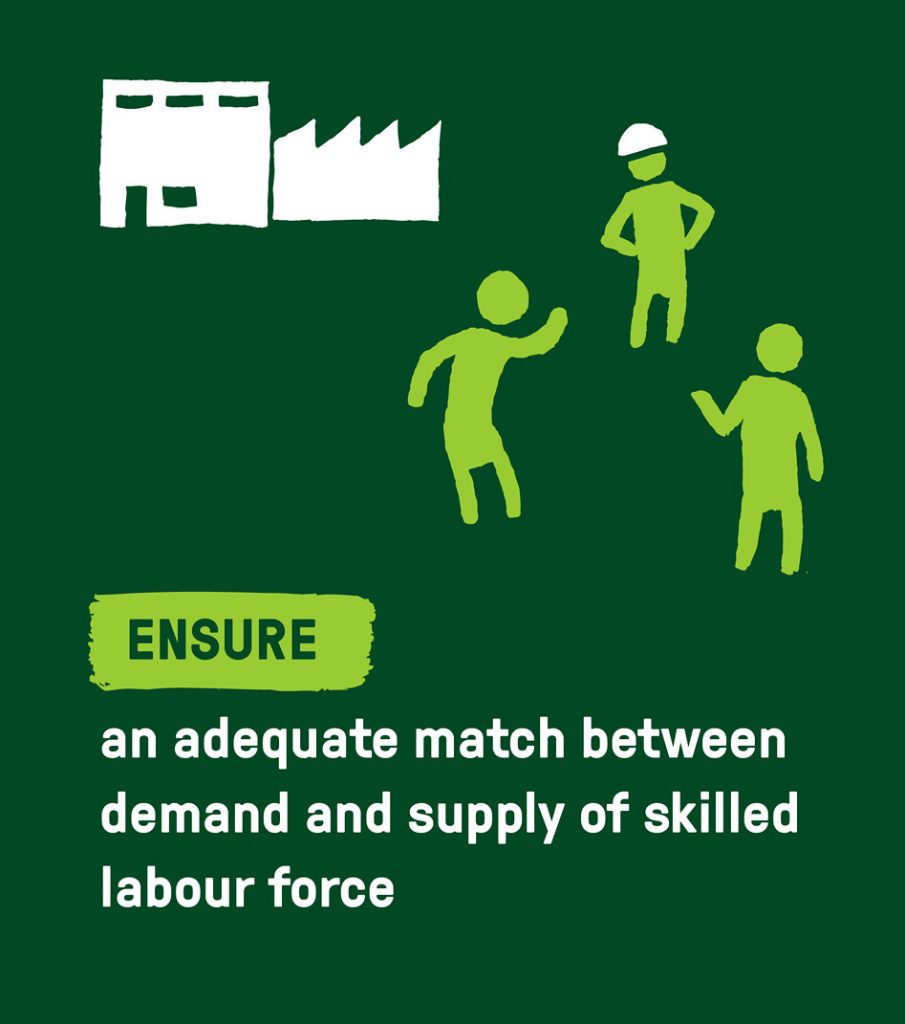
We must engage the labour market, especially the private sector, in curricula building and employment paths. That means arranging internships and apprenticeships that lead to jobs, as well as inviting professionals to give guest lectures.
But it also means persuading employers and governments to recognise skills in students, such as prior experience when formal diplomas are lacking. This helps those with, e.g., low literacy skills, get a foot in the door.
9 Technology, environment, and innovation
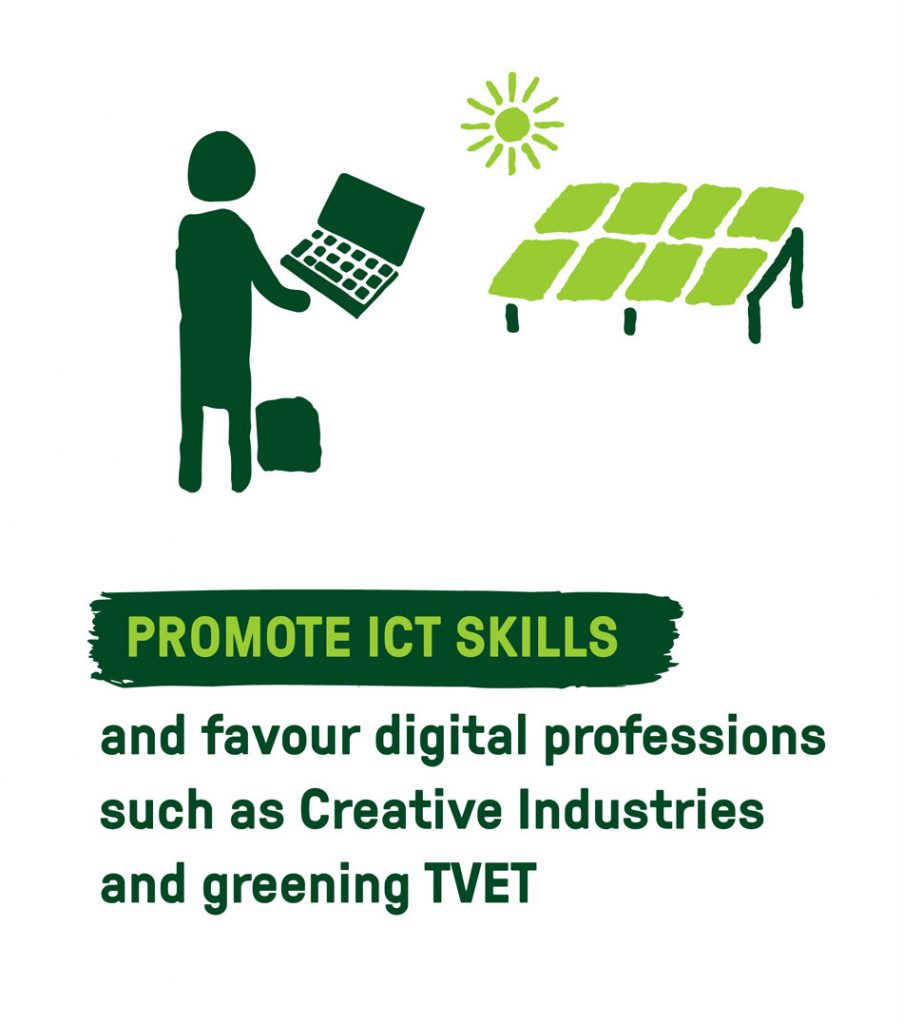
The future is green and digital. TVET must recognise the changing employment environment and factor that into the development of TVET courses. Finn Church Aid is deliberately promoting ICT skills and digital professions, such as our innovative Creative Industries programme, currently piloting in Uganda and Kenya.
Greening TVET is crucial for a just transition to green markets. That means adding climate-sensitive content to curricula; promoting resource efficient sectors such as renewable energies, circular economy, bioeconomy and sustainable water management; and offer re-skilling and upskilling courses in growing sustainable economies.
The author of this blog is FCA’s Head of Advocacy
Main photo: Hugh Rutherford for FCA
